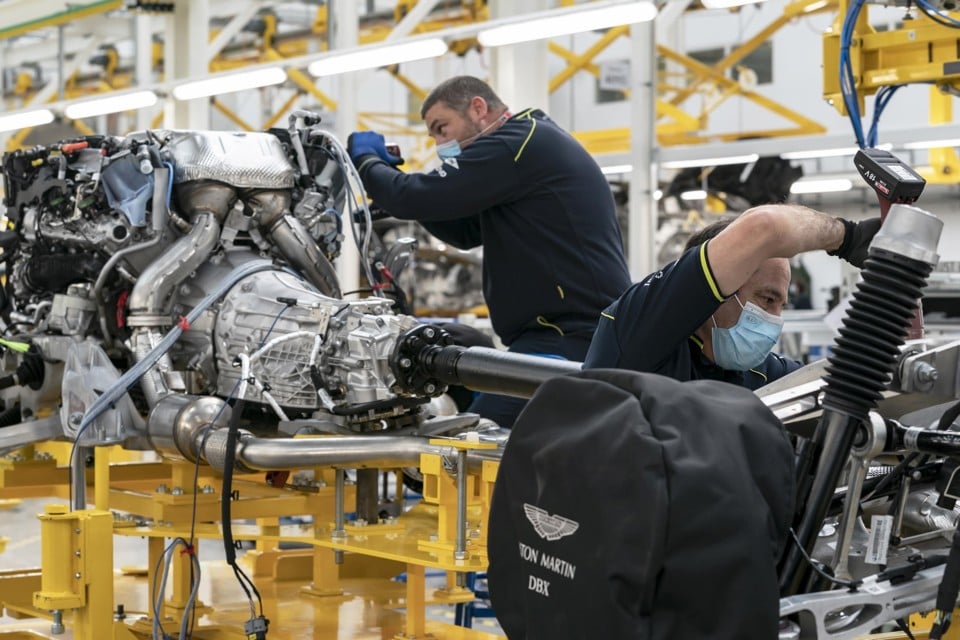The Society of Motor Manufacturers and Traders (SMMT) has highlighted UK car makers’ 11.8% reduction in fleet carbon emissions in its latest Sustainability Report.
The industry body spelled-out the various challenges faced by the sector in the report, but said that UK production of electric vehicles (EV), plug-hybrids (PHEV) and hybrid vehicles (HEV) rose to 18.8% of all cars made in a COVID-hit 2020, up from 14.8% in 2019, with BEVs increasing to a 4.5% share, up from 3.4%.
And it asserted that OEMs remain focussed on a bid to deliver a choice of over 300 EVs to the market by 2025, up from around 130 available today.
The report also highlighted issues away from the transition to EVs, however, calling for concerted efforts to be made to drive diversity in a sector where just one-in-eight employees is female.
 SMMT chief executive, Mike Hawes, said: “The impact of the pandemic on a sector such as automotive, one which depends on global supply lines, strong consumer demand and a highly skilled workforce, was always going to be severe.
SMMT chief executive, Mike Hawes, said: “The impact of the pandemic on a sector such as automotive, one which depends on global supply lines, strong consumer demand and a highly skilled workforce, was always going to be severe.
“As the latest Sustainability Report shows, economic and market growth stalled with many factories shuttered and retail closed.
“Yet the pandemic also proved the importance of the sector as it turned its capabilities to PPE and ventilator manufacture and assured the nation’s mobility through the continued servicing and repair of vehicles.
“Despite the adversity, the industry’s commitment and investment in zero emission vehicles remained undiminished, delivering the best-ever single year of fleet average carbon reduction.
“Much more needs to be done on this and so many other sustainability indicators, to which the sector looks to the Government to ensure the framework, incentives and infrastructure exist to enhance our competitiveness and deliver the sustainable future society demands.”
The SMMT said that the UK’s car manufacturing sector had asserted its position as “one of the country’s most important economic assets” over the past two decades, having growth turnover by 25.7% since 1999, to £60.2 billion last year.
In the same period, the sector has committed a more than three-fold increase in R&D spending.
The past year has seen the industry hit hard by the pandemic with automotive sector turnover down by 24.6%.
As the UK prepares to host the UN’s COP26 conference, however, the SMMT asserted that the nation’s vehicle production was more sustainable than ever.
Factories now consume 14.2% less energy and 36.8% less water per vehicle than at the turn of the millennium, it said, with total combined waste to landfill down 98.7% and CO2 equivalents per vehicle produced falling 36.5%.
However, due to efficiency losses caused by reduced production throughout the pandemic, year-on-year energy, waste to landfill and water usage increased per vehicle by 11.2%, 19.9% and 8.3% respectively.
While the car manufacturing sector remains committed to a greener future, the SMMT said that fast progress still needs to be made in the provision of charging infrastructure.
The SMMT also admits that it has its own issues to tackle, too, with its report indicating that just one-in-eight car manufacturing employees are female.
In a bid to commit to continued change, both in terms of sustainability and diversity, the SMMT’s report made the following recommendations to enable sector to deliver on its commitments:
- Ensure UK skills and training underpin the transition to green jobs
- Maximise the opportunity to deliver net zero transport
- Support sustainable automotive supply-chains and sub-sectors
- Ensure growth in charging and refuelling infrastructure matches the ambition of the automotive sector
- Empower consumers to make zero emission their first choice















Login to comment
Comments
No comments have been made yet.